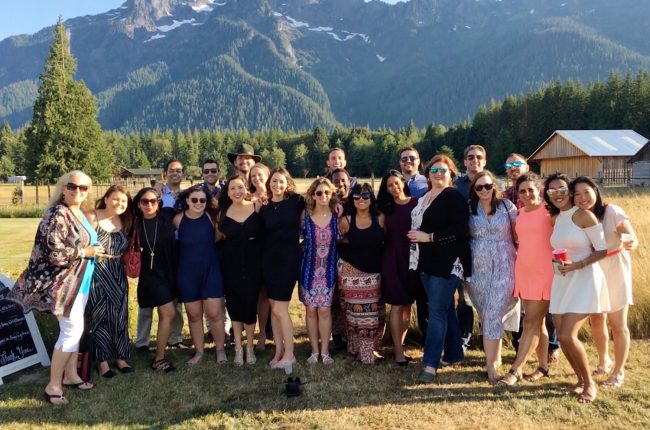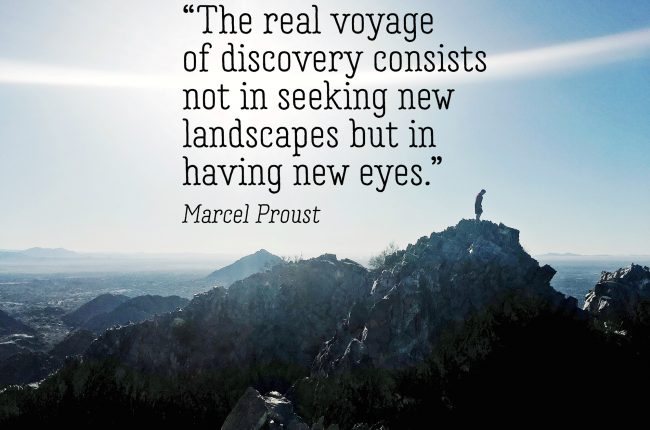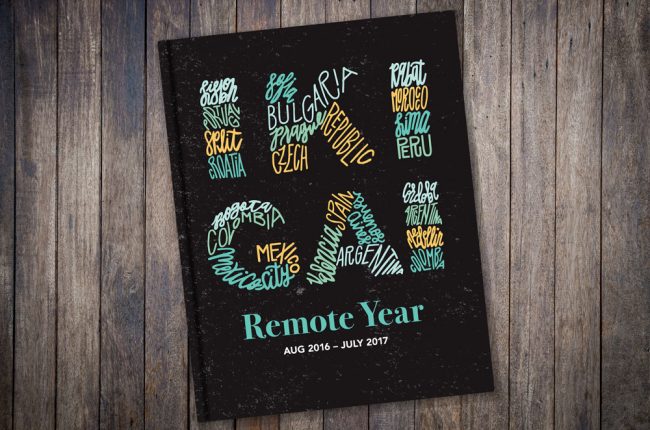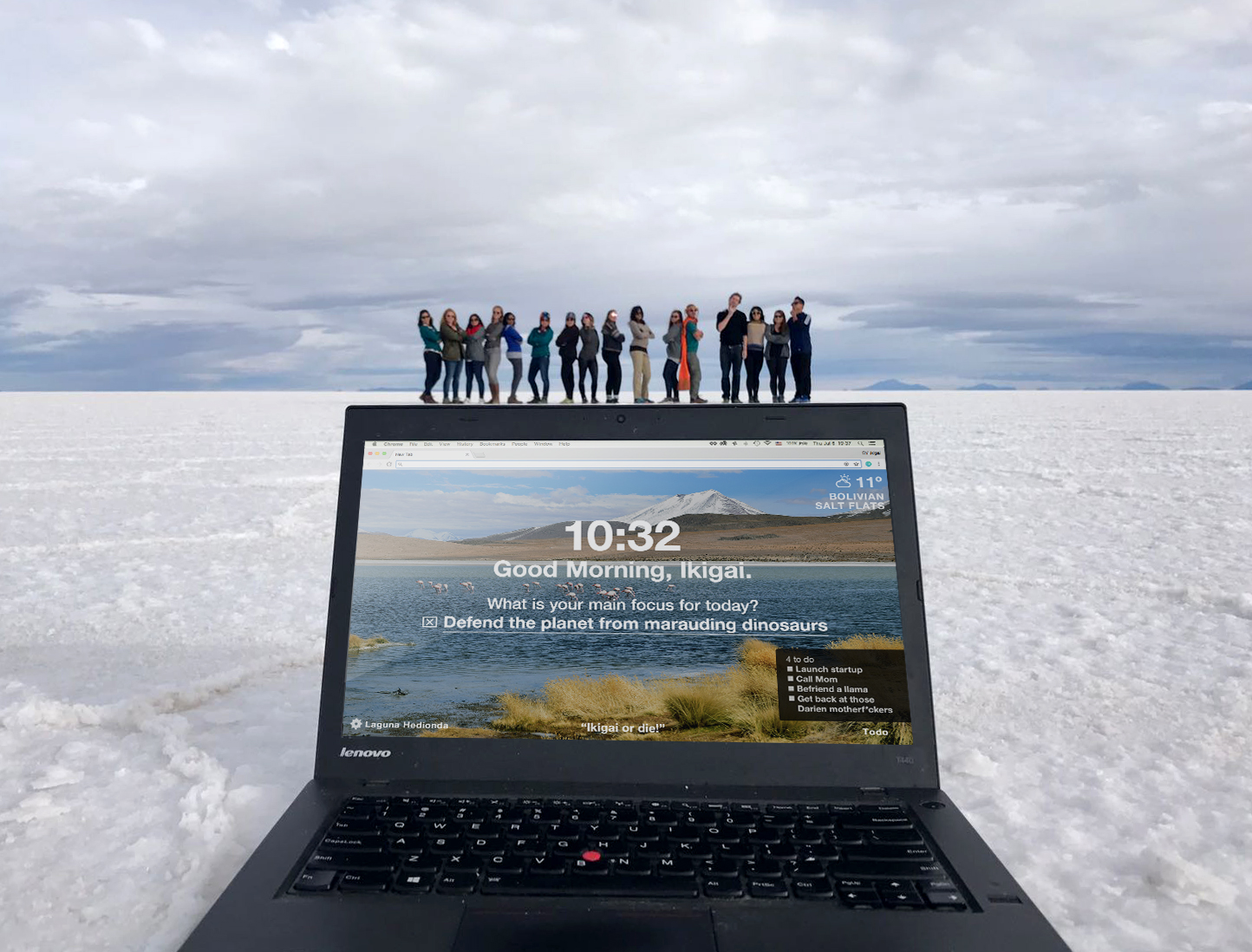
As I’ve been reconnecting with friends and family around the country, I’ve found that the same questions keep popping up about my 12 months of traveling with Remote Year. I find myself kinda glazing over and starting to give the same rote answers, which is never a good way to engage in conversation. So, here I’ve put together a bit of an FAQ about my year, as well as a few tips for how you can ask me questions that are guaranteed to not get a stock answer.
What was your favorite place?
This is such a popular question that I’ve dedicated an entire post to it. It’s also where I shared a basic summary of the entire year. If you haven’t been paying attention, you can read the Cliffs Notes there. (Warning: even the highlights are a little long.)
So, how was it?
How do I pack a year of living in 12 different foreign cities, visiting 22 countries across four continents, trying to communicate in 8 different languages (plus several variations of Spanish), getting to know 75+ dynamic, diverse people, all while maintaining a new freelance business across multiple timezones into an answer to that question? Whenever someone asks that question, I’m tempted to shrug my shoulders and reply, “It was alright.”
How exactly does Remote Year work?
This blog post gives a good run-down about the program.
How’d work go?
Mostly pretty well. I started my freelance business five months before setting out on Remote Year, so I was still figuring a lot out. (Confession: I still feel like I’m figuring out how to run a business. The design stuff is easy; the business stuff is tricky.) I started RY with a contract gig that I knew was going to end after a few months, but it was a helpful way to get started. I was lucky enough to have a severance from my previous employer (I was one of many “casualties” of a merger/acquisition, an experience that—while painful at the time—I will always be thankful for because it gave me the freedom to look for opportunities like Remote Year) and a healthy savings, and I was able to keep enough work coming in to stay afloat.
In truth, this year my focus was on figuring whether freelancing would be a sustainable career and whether I liked it. I wanted to maintain enough clients to figure out the basics of running my business and keep my bank account from running dry, but I also wanted to keep my commitments low enough to have time to explore. I worked probably a quarter of the pace I used to keep at the agency. I took almost any kind of design work that came my way, even when I wasn’t super familiar with what was being asked of me. I learned new skills, like how to create an animated GIF or design a DVD disc and cover wrap. Almost all of my work came to me via word of mouth or an introduction via a mutual connection. I got a couple of small projects from a contact I made through our coworking space in Prague, but other than that, all my clients were back in the U.S. Some months, I spent more time on volunteer work than paid work.
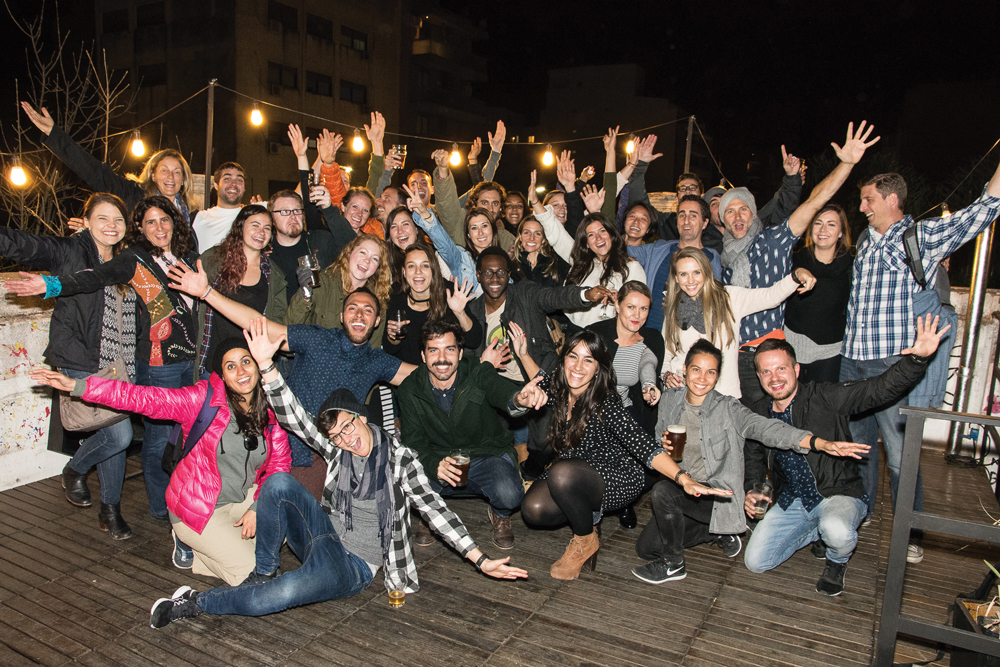
Did you get along with everyone in your group?
When I set out, I expected the group would be a bunch of millennials and lots of Real World/Road Rules-type drama. I started the year hoping there would be one or two level-headed people in my cohort that I would connect with, while simultaneously putting up a few walls to keep most people at a distance. Turns out that was basically the same M.O. of most everyone in our group. After a few weeks, I started to let my guard down. Some of the people I didn’t take the time to know at the beginning ended up becoming my closest friends and confidants. Sure, there were some ups and downs, a tiff here and there, and there were some people I became closer to than others. But overall, I’d say that our group, named Ikigai, has a strong, supportive and embracing bond. And I use “has” instead of “had” because we still are in daily communication via WhatsApp, and hold weekly video chats to say hi and catch up on each others’ lives. During my travels around the U.S. I’ve been able to meet up with several RY friends (including a night out in San Francisco with Sami, Jen and Miranda last night). Not a week goes by without an Ikigai reunion happening somewhere around the globe.
What was dating like while traveling the world? Did anyone hook up?
Looking for gossip, eh? Well, it probably wasn’t any different than you might expect when you throw 70+ brilliant, dynamic, adventurous, and might I include good-looking strangers together in exciting locations around the world. Sure, there were hook-ups and break-ups. Make-outs and flame-outs. And lots of crushes (of both the requited and unrequited variety). But honestly, there were very few blow-ups because we were all grown-ups. (Pats self on back for the cute word play.) Any drama that did go down usually washed away in a few days, and the people involved didn’t drag the rest of the group with it.
Our group started with two couples—one married, one dating—plus a handful long-distance relationships. All the couples that started the program together are still together (yay love!). A few of the long-distances relationships fizzled, while some stayed strong. Within Ikigai, we had several couples form, most of which are still thriving (cue the “yay love!” cheer again). A few local relationships also formed, thanks to the magic of Tinder, mutual friends or just having the cajones to chat up a stranger. Two couples from our Ikigai community are now engaged (all together now: “yay love!”).
But what about you, Erica? Did you bring back a Latin lover?
Nope. Not enough room in my carry-on, my friends. 😉
Did you feel safe?
For the most part, yes. I experienced some petty theft during the year (my phone was snatched from my purse at a bar in Bogota, Colombia; and my camera gear, a portable speaker, high-quality winter accessories and a couple of make-up items were stolen out of my apartment in Cordoba, Argentina), but I never felt physically in danger.
The closest time I came to that feeling was walking home by myself on a fairly busy street after dark in Rabat, Morocco. A sketchy man started following me and saying what I assumed were taunts to me in both French and Arabic. After putting up with him for a block, I waited until two kind-looking middle-aged men were within earshot and an arm’s length, and I whirled on the man, pointed at the two gentlemen and said, “Arrêt! Ils te voient!” (In English: “Stop! They see you!”) I then walked swiftly away as the two guys confronted the sketchy dude. I didn’t look back until I was a block past my destination, then I went around the corner and doubled-back. The only other dangerous moment I remember hearing about from within our group was when my friend Nathan was robbed of his phone and wallet at knife-point when he was alone in a Moroccan medina late at night. Lesson learned: always walk with someone else at night in Morocco, no matter if you’re male or female.
What do people abroad think about America/Trump?
I’ll refrain from getting too political here, but suffice it to say that based on my conversations with locals around the world, most people seemed confused about what is going on in America right now. In the days following the November election (we were in Split, Croatia), a few people in our group met locals who bought them consolation drinks immediately after learning they were Americans. As you might imagine, Remote Year tends to attract middle-class, educated progressive-leaning Americans, which means that as I traveled the world, my close social circle tended to be a bit of a bubble with similar globalist political and social views. At the time, the election results caught many of us by surprise, but as I expanded my world view, I started to realize that nationalism is not isolated to the U.S. but is a trend crossing the globe. We’ve seen it in Brexit, the Catalan independence movement in Barcelona, the French election, Rodrigo Duterte’s leadership in the Philippines and Recep Tayyip Erdogan’s leadership of Turkey, and more. So, while my American friends were messaging me, “Oh man, you should be glad you’re away from the U.S. during all this craziness,” I should have been responding, “Oh man, you should see the craziness going on out here.” It really does fascinate me that as our ability to connect, communicate and trade across borders and cultures becomes easier, quicker and more ingrained in what we do every day, people across the world are feeling an emotional pull to circle the wagons.
What did you miss most while you were away?
If I were a good daughter or friend, I’d say I missed my family and friends. But the truth is what I missed the most was my house. I love that place. While the accommodations RY put us up in throughout the year were sufficient—sometimes even more than sufficient (thank you Split and Bogota!), I missed the familiar comfort of the kitchen I renovated, the meaningful art on my walls and my very own bed.
What are your fellow Ikigai Remotes doing now?
I’d estimates that a little more a third are still traveling, a little more than a third have either returned home or moved to a new home, and a little less than a third are in limbo, either trying to figure out where to go/what to do next, or taking their sweet time to get there, like me. Some people have returned to the office they were working from before Remote Year, some have started new jobs, and others are looking for their next career move. Remote Year offers a sort of alumni program to anyone who “graduates” from a full RY year, so several friends from my group have been going that route. It’s called Citizenship, and my friend Lauren explains it better than I could in this post on her blog.
What’s next?
Now that I’ve returned to the U.S., I’m planning to keep my travels a little more low-key. I’m wrapping up two months of road-tripping between Wisconsin and California (including a dozen days in Phoenix), and I move back into the house I own in PHX on Monday. I found that to my surprise, I actually like freelancing, and I’m excited about some new clients and new projects on the horizon. I’m ready to take some time to focus more on work than I did during the past 15 months, but I’m building in time to do some domestic travel as well. During my road trips, I found that I loved the freedom and flexibility of throwing a tent and a sleeping bag in the backseat of my car and making last-minute camping plans. I’m eyeing a few weekend getaways that are a car’s drive from Phoenix (I see you, Antelope Canyon, Arches National Park, Palm Springs and Senoita, AZ), and I’m trying to figure out a good time to visit my sister and her wife sometime next year after they move to Virginia.
What’s your next foreign destination?
There are a few places I’ve been wanting to visit for more than a year or two: Seoul, South Korea to visit my friends Elise and Matt; all over Japan to marvel at cherry blossom season; Nicaragua to check out the bed and breakfast that my friends Angela and Heath opened; Cuba to see it before it changes; New Zealand to road trip around the islands in a camper van. Then there are all the places I was so close to earlier this year but didn’t get to explore (Bosnia, Montenegro, Serbia, Cinque Terre, Ecuador) or the places I visited and really want to return to (Croatia, Mexico City, Colombia, Spain, France). The problem with the travel bug is that there is no cure. Honestly, before I set out for a foreign adventure, I first have to build up the travel budget again. For now, I’ll be content with my domestic road trips, though you can bet that I’ll eventually break and start planning to hop a boarder somewhere.
My friend/niece/dog-sitter’s boyfriend’s cousin is interested in Remote Year. Can you talk to them?
Sure, but first, encourage them to check out the RY website in detail, read some blogs (these are good ones to start with), and actually apply. It’s a rolling acceptance and is honestly a no-stress application/interview process. They’re mostly looking for people who A) understand the concept of Remote Year (if they’ve read the blogs I linked to above and still don’t understand that Remote Year doesn’t provide jobs, then they’re probably not the right participant for RY), B) can afford the program fees, and C) would be a good cultural fit (curious, open, flexible and plays well with others). I think that the best time to consult with a current or past RY participant is once someone has been accepted but before handing over the downpayment. Then, I’m happy to chat about specific advice.
—
So, there you have it, the FAQ from my year of traveling with Remote Year. If you’ve read all the way through, we can jump straight into deeper conversation, like what I missed in your life while I was away. Or, if you still want to ask questions about my travels, here are five tips for questions I don’t often get asked. It’s much more fun to share stories and insights when questions are specific and unique to your interests.
1. Ask me about a specific photo, a Facebook post or blog entry that caught your attention during the year. There’s likely a fun back story to it.
2. If there was a country or city I visited that piqued your interest or that you plan to visit, ask me for travel tips. I can share everything from tips about neighborhoods to stay in, sites to check out, and the best local coffee shop to chill at or work from.
3. If there’s a step in your daily or weekly routine that you just can’t imagine changing, ask me how I handled that step while navigating different cultures, time zones and languages. You’d be surprised what I learned about things like taking out the trash, riding in an Uber, ordering coffee or buying tampons in different countries. (Seriously, ladies, we could have a long international girl talk conversation.)
4. Ask me about how I experienced one of your favorite hobbies or interests across different cultures. Food, dancing, music, hiking, movies, bowling, you name it, I probably experienced it.
5. If you’ve been to one of the places I traveled to, let’s swap stories about favorite local delicacies and discoveries.
Also published on Medium.

